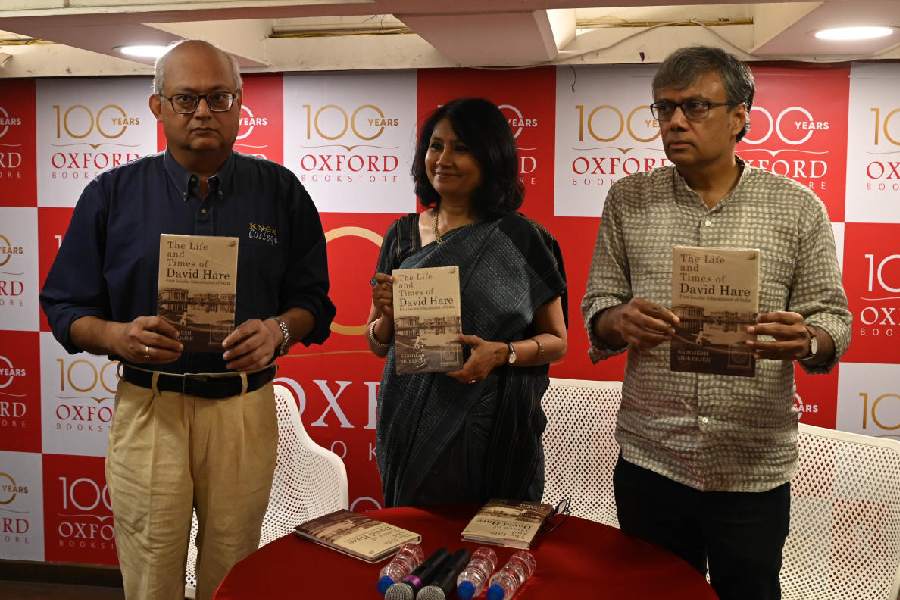David Hare was instrumental in founding premier educational institutions like the Hindoo College (erstwhile Presidency College and now Presidency University) and the Calcutta Medical College. David Hare also managed something unheard of in 19th century India — keeping religion out of the classroom.
The launch of a book on Hare, a Scotsman who arrived in Calcutta in 1801 to make a living as a watchmaker but dedicated his life to the uplift of Indians through modern education, looked back at his life and the times he lived in.
The author, Sarojesh Mukerjee, an educationist himself, discussed his book with historian Rosinka Chaudhuri on Wednesday evening.
Mukerjee’s book, launched at the Oxford Bookstore, is titled The Life and Times of David Hare. The subtitle reads “First Secular Educationist of India”.
Rosinka Chaudhuri, director and professor of cultural studies at the Centre for Studies in Social Sciences, Calcutta, asked the author about the subtitle and wanted to know what prompted him to write the book.
“It was entirely out of my interest in education. I had no idea when I began writing the book that he was such a strong votary of secularism,” said Mukerjee, the founder of The Cambridge School.
“In the early 19th century, no such person existed in Calcutta. The idea of secularism then was different from what it is now. At that time, it primarily referred to keeping the Christian missionary influence out because that was the prevailing force,” he said.
He cited the examples of “the first organised schools in Bengal” that were opened by missionaries like William Carey and John Clark Marshman.
Mukerjee said they were “primarily missionaries and then educationists”.
There were other indigenous schools like the Hindu pathshalas and Muslim madrasas which, he said, were “depending upon your point of view, mired in religiosity or deeply religious”.
Mukerjee’s book was launched by Rosinka Chaudhuri and novelist, essayist and poet Amit Chaudhuri.
